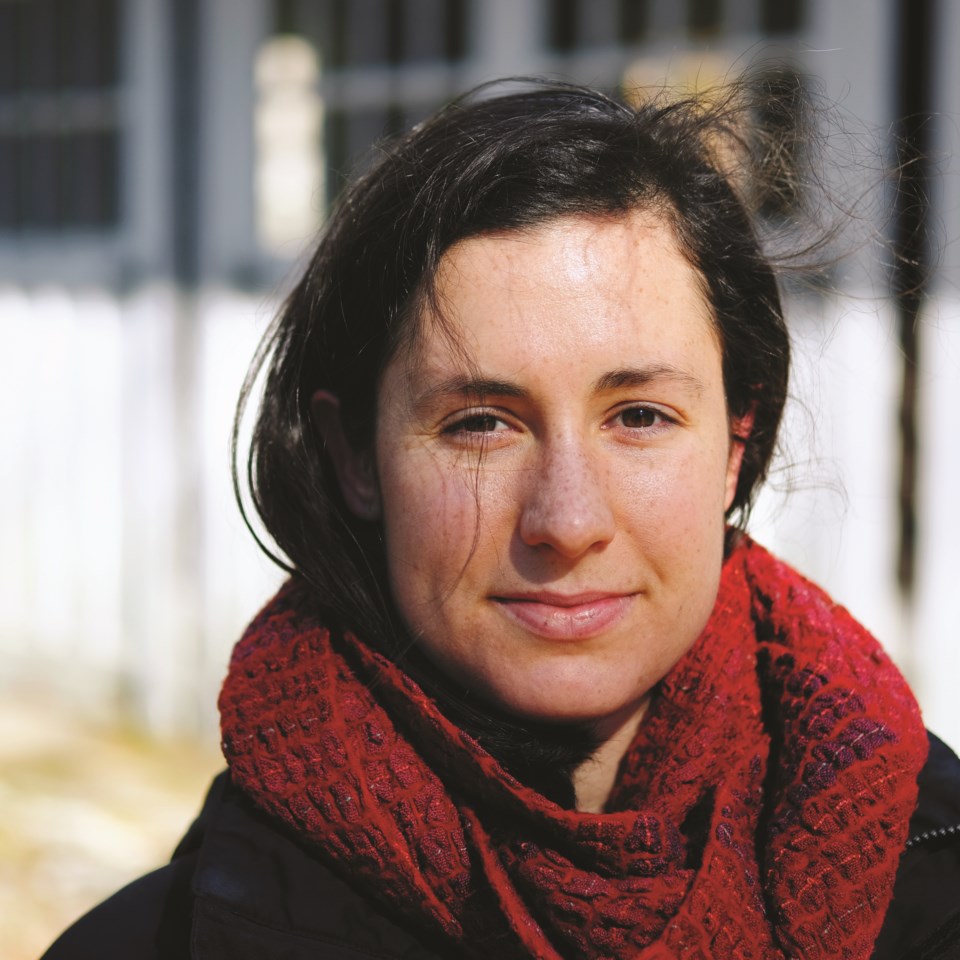For as long as she can remember, former Whistlerite Anna Pitoniak has been deeply fascinated by Russia, and she can’t quite pin down exactly why. Part of it is her long-held adoration of Russian literature. Part of it is the country’s distinctly troubled past.
“It’s just this incredibly complex and tortured history of the country. It all happens on an epic scale,” she says.
The 33-year-old Whistler Secondary alum has channelled that obsession into her new novel, Our American Friend, published Feb. 15 by Simon & Schuster. Centring on mysterious Soviet-born first lady Lara Caine and the disillusioned White House correspondent Sofie Morse tapped to write her biography, the book is a Cold War thriller that spans from the ’70s to the present day, ushering readers from the bread lines of ’80s Moscow and the catwalks of Paris to the halls of power in D.C. and New York.
The original seed of inspiration for the book came from a profile in GQ of former first lady Melania Trump, months before her husband, real-estate tycoon Donald Trump, defied predictions to win the 2016 U.S. election. Pitoniak was struck by the improbable path Melania had taken to the White House. Growing up in the former Yugoslavia, Melania’s father was a senior member of the Communist Party, and at least by the average Yugoslav standard, lived a relatively charmed life.
“She grew up in a communist society in a sort of privileged position but very much imbibing that ideology. Then here she is, decades and decades later, in the ultimate capitalist society, which is America, and she again finds herself in this position of immense privilege,” Pitoniak says. “I just found myself so interested in what it must have been like to grow up with one set of beliefs and values and then to wind up living your adult life with a totally different system of beliefs and values—and had something happened along the way to cause her to shift her thinking, to change her loyalties?”
But Pitoniak had no interest in rehashing Melania’s life; instead, she used her as a loose basis for the similarly enigmatic Lara Caine. Born in Soviet Russia and raised in Paris, where she worked as a model, Caine moved to America and married the notoriously brazen future president, Harry Caine.
When she asks Morse to pen her biography, the journalist is intrigued, if only because so little is known about her past. A friendship develops between the two, and Caine is surprisingly open about her history, discussing her father’s work as an undercover KGB officer in Paris—and how he wasn’t the only member of the family who worked undercover in the Cold War. Eventually, Morse begins to wonder why the First Lady is so quick to divulge such sensitive details to a journalist responsible with sharing her story with the world—and why now? Suddenly, Morse finds herself in a high-stakes game of geopolitical cat and mouse.
“I think [Caine’s] a really interesting example of how a person’s motives can fluctuate depending on the circumstances of their life. Sometimes we’re able to find those moments of bravery when we can set self-interest aside and do what we know is the right thing, but other times we’re too scared, and we’re just focusing on pure self-preservation,” Pitoniak explains.
The author’s research was profound, bringing her to the streets of Moscow so she could “breathe Russian air” and the halls of the CIA’s headquarters in Langley, Va.
“[The CIA] don’t have the power to censor what you’re writing, but I think often the CIA looks at the way they’re depicted in pop culture and they think, ‘Well, people always get this or that detail wrong,’’’ Pitoniak says. “They were incredibly helpful. I had a lot of questions about details like how does an officer go about recruiting an agent. What does Step 1, Step 2 look like? I could glean a lot of this from my reading and my research but they were able to really get in the nitty gritty with me. Then there were some questions I asked they couldn’t answer.”
The American-born Pitoniak’s formative years came in Whistler, and for the bookish kid who spent much of her free time in the library or at Armchair Books, she found a valued support network in a community not exactly known for its literary bent.
“I was that nerdy kid who always had her nose in a book. I spent so much time at those two places and they were really important in making me the reader I am,” she says.
Our American Friend is available now online and in bookstores. Learn more at annapitoniak.com/our-american-friend.




